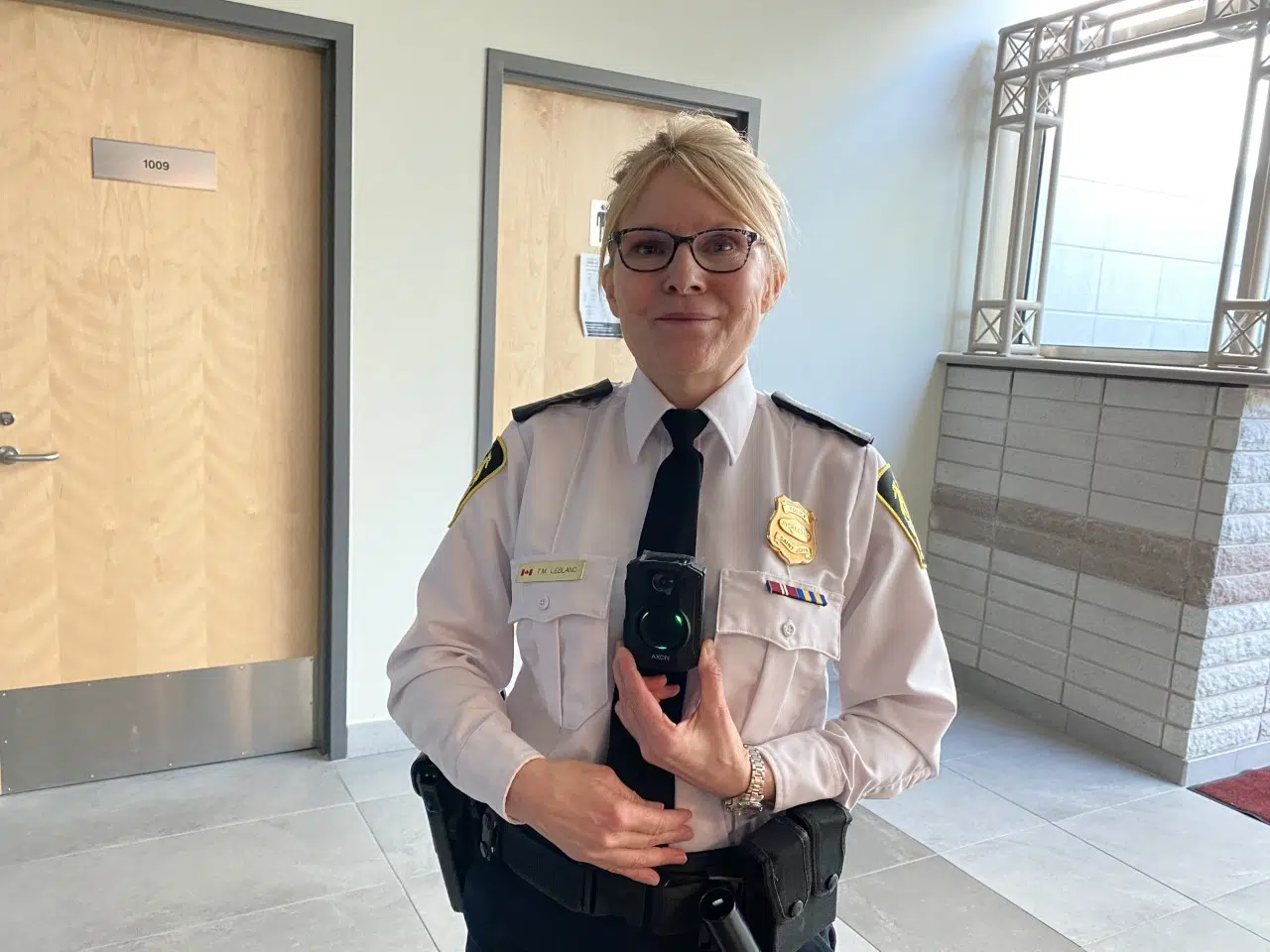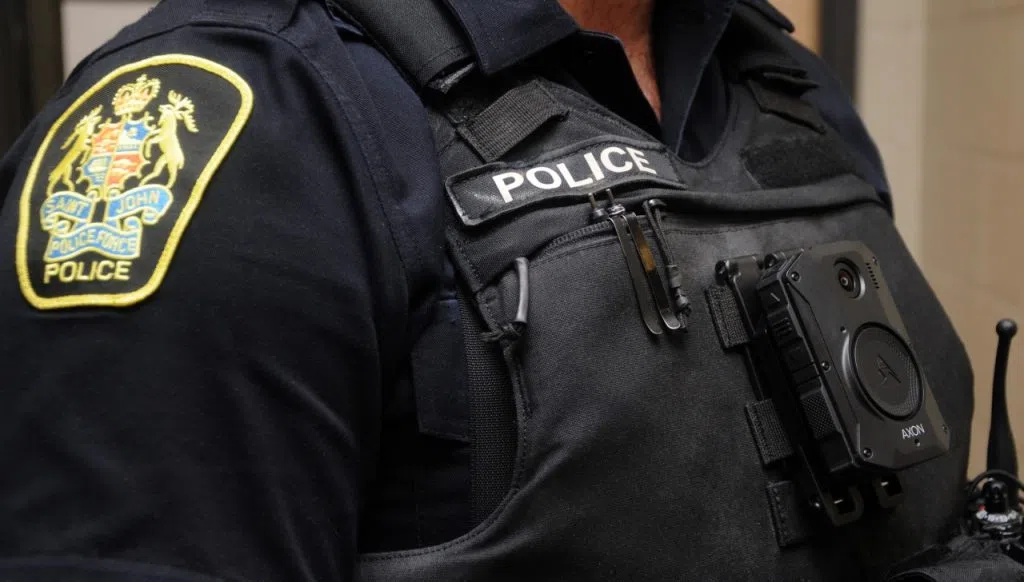
Insp. Tanya LeBlanc of the Saint John Police Force shows one of the body cameras that officers will be wearing. (Image: Brad Perry)
All frontline Saint John police officers will be wearing body cameras by the end of July.
The cameras will begin rolling out this week after several delays over the past two years.
“It’s going to be a very good thing for both the Saint John Police Force and the community,” Insp. Tanya LeBlanc said Tuesday after a presentation to Saint John Police Commission members.
The body-worn cameras were first announced by the force in July 2020 and were expected to be deployed that November.
But Chief Robert Bruce said a number of factors led to delays, including COVID-19 and the cyberattack against the city.
“We had to do some retraining and we have to still do some training of our frontline officers and we wanted to make sure we had our policy intact,” Bruce said during Tuesday’s meeting.
The police force has acquired 62 Axon Body 3 cameras and the software that goes with them at a cost of around $770,000 over the next five years.
But LeBlanc said there are a number of benefits to body cameras that will make the initial investment worth it in the long run.
Among other things, she said the cameras will increase police transparency and accountability, leading to a better relationship with the community.
LeBlanc said the camera footage will also provide additional evidence for court cases, make resolving police complaints more efficient, increase officer safety, and inform future training.
Officers will wear the cameras for their full shift, but they will not be recording the entire time, she said.
“When a member is being dispatched to a priority call and activates their lights and sirens, the cameras will turn on,” said LeBlanc.
For other non-urgent calls, it will be up to the individual officers to turn on the camera manually.
LeBlanc said officers will be able to view their footage through a secured platform once they return to the police station, but will not be able to delete or alter it.
But there will be instances when the camera will not be used or when an officer should stop recording. That is outlined in a yet-to-be-released policy that has already been approved.
“Members are going to be well-trained and they’re going to be advised how that camera should be operationalized. Members are not going to be arbitrarily turning the camera off,” said LeBlanc.
LeBlanc noted that the force consulted with officers and members of the chief’s advisory committee — made up of members from several community groups — to get input on the policy.
It is hoped that policy will be made public in the near future, she said, something Black Lives Matter New Brunswick has been calling for.
LeBlanc said all members will be trained on the cameras and the policy developed for their use.








